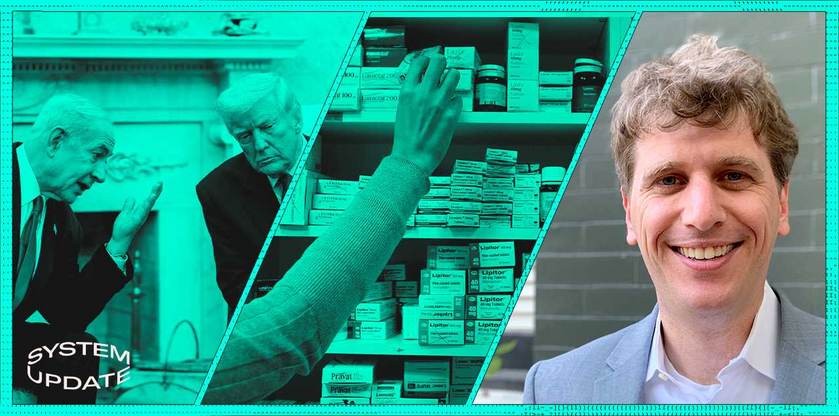The following is an abridged transcript from System Update’s most recent episode. You can watch the full episode on Rumble or listen to it in podcast form on Apple, Spotify, or any other major podcast provider.
System Update is an independent show free to all viewers and listeners, but that wouldn’t be possible without our loyal supporters. To keep the show free for everyone, please consider joining our Locals, where we host our members-only aftershow, publish exclusive articles, release these transcripts, and so much more!
On our program last week, we asked whether there was anything really authentic or meaningful about various reports suggesting a growing rift between Donald Trump and Benjamin Netanyahu. There was some evidence to substantiate that suspicion, but as we noted last week, far more than that would be required before believing that there has been a split between any Israeli Prime Minister and any American president, let alone one as surrounded and funded by Israeli loyalists, as Donald Trump has been and still is.
Now, this is still my view: I want to see far more proof before concluding that this divergence or even animosity between the two governments is both real and enduring. But the evidence for this view is now far more ample and concrete than it was when we reviewed it last week. This split extends to several different Middle East regions and a variety of different agenda items for both Washington and Tel Aviv.
We'll show you all of that evidence and also review the latest in the U.S./Israel relationship, including what that might mean for Gaza, the West Bank, Iran, and beyond.
Then, we’ll have Matt Stoller, one of the most knowledgeable analysts on the U.S. government's fight against Big Tech's antitrust violations, to discuss President Trump’s executive order reducing the price of medication and other pharmaceutical products for Americans, who have long paid significantly more than anyone else in the world for pharmaceutical products.
In terms of the U.S. role in the world and its foreign policy, there have been few aspects or components of the U.S. government more significant than its relationship with Israel. You can certainly make a case that the relationship with Israel, that inextricable link with Israel, has brought the U.S. into numerous different wars over the years.
It has also resulted in a contract of dependency by which the United States not only gives Israel $4 billion every year, in a deal negotiated by Obama on his way out the door with Netanyahu, most of which is spent on buying U.S. weapons – so it's like a gift certificate to the Israelis – but not all of it.
So, if that were ever to change in any way, it would be momentous. The consequences would be difficult to overstate. Yet, that's precisely why there's so much money, so much power, and so much organized pressure brought to bear on American politicians to make sure that doesn't ever happen. And it hasn't happened for decades.
The last time it happened was in the Bush 41 administration, which had Bush's Secretary of State James Baker, who was just an old foreign policy hand and very much believed in a realist view that U.S. interests should come first. He worked with the national security advisor, Brent Scowcroft, who was also a realist, about whom Obama once said was one of his favorite foreign policy officials, because Obama wanted to adopt a realist view of foreign policy as well.
Both of them understood that one of the main problems for the United States in the Middle East, and generals have said this over the years, all kinds of national security officials, was the fact that the conflict between the Israelis and Palestinians is ongoing. The United States is so overwhelmingly, exclusively on one side of that conflict, namely fueling and funding Israel, that the entire Arab world always watched the Israelis killing innocent Palestinians, blowing up their children, Israel bombing Lebanon, Israel bombing Syria, taking land, and that entire part of the world understands that we're at fault for that because we're the ones enabling it with our arms and money.






















